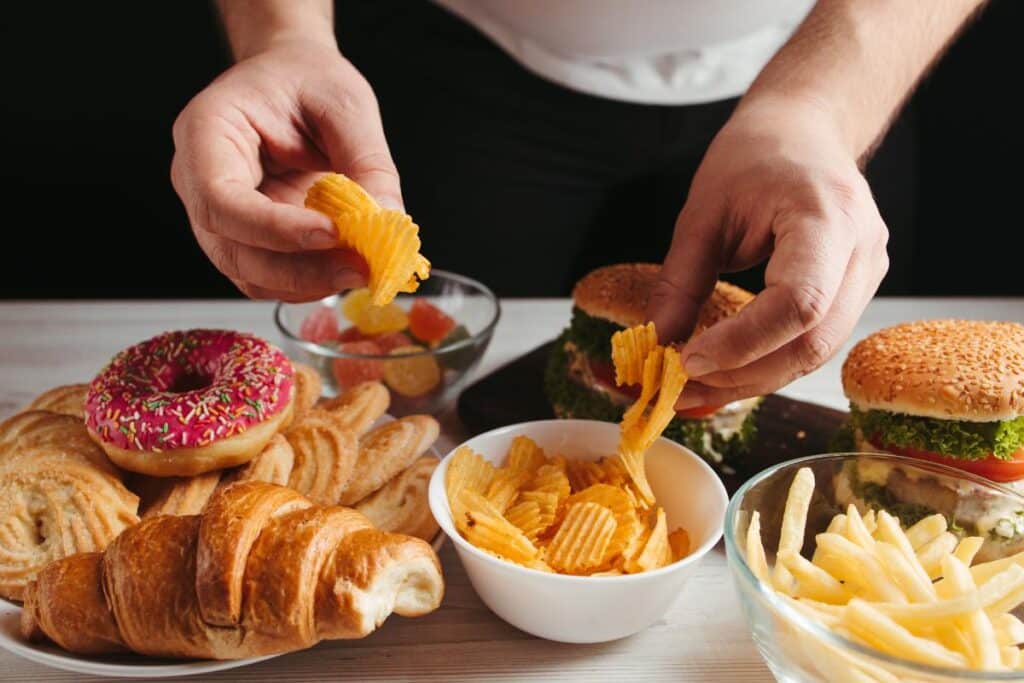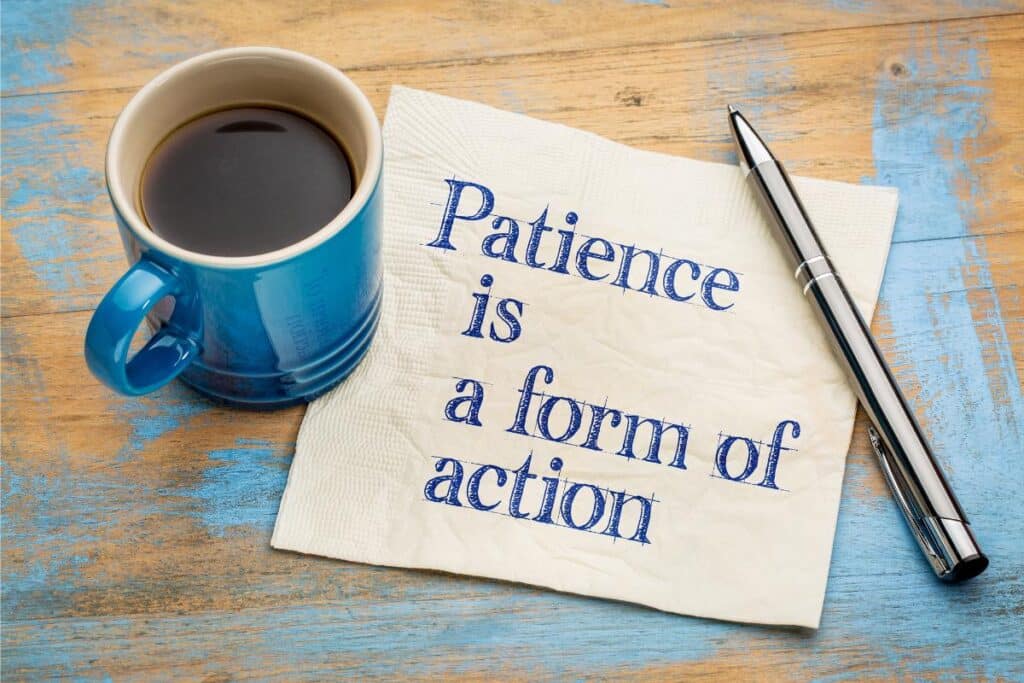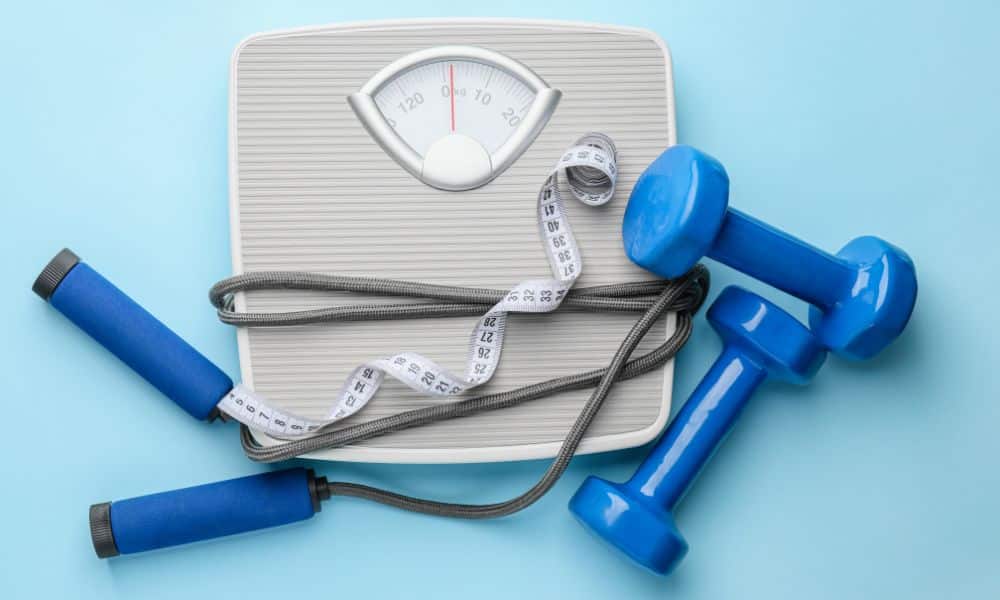Do you want to know why you struggle to lose weight? Losing weight can be a difficult and frustrating process. There are many reasons why people struggle to lose weight. But the most important reasons are not so obvious. Sure losing weight is as simple as eating less and moving more.
Also, let’s not forget about the psychological reasons. The top three psychological reasons why people struggle to lose weight are:
- Stress: Stress can lead to unhealthy eating habits and weight gain.
- Lack of motivation: Losing weight can be a long and challenging process, leading to a lack of motivation.
- Sabotaging behavior: Some people may sabotage their weight loss efforts, either consciously or unconsciously.
If you are struggling to lose weight, it is vital to understand the reasons why. Once you know the factors contributing to your weight gain, you can develop a plan to address them. With hard work and dedication, you can achieve your weight loss goals.
Here Are the Top 5 Physical Reasons Why So Many People Struggle to Lose Weight
- Counting Calories: Some people don’t know how to count calories correctly.
- Eating the Wrong Foods: Some foods make you eat more, and others that cause you to eat less.
- Focusing on Exercise: While exercise helps you lose weight, the focus should be on things that can help you lose more weight faster and easier.
- Not Listening to Your Body: Your body responds to the world and lets you know what works and what doesn’t.
- Lack of Patience: While your body may respond immediately to lifestyle changes, it takes a while to show on the scale.
You will find that a weight loss journey can be fun and successful by fixing these five things. Weight loss is not magic but science. When you lose weight correctly, you will lose the weight and keep it off.

1. Counting Calories Incorrectly
Counting calories is a popular weight loss strategy that can be effective for many people. However, it’s essential to do it correctly to prevent yourself from struggling during your weight loss journey.
To lose weight, you must be in a calorie deficit. But to be in a calorie deficit, you must count your calories correctly. Not counting the calories correctly can cause you to be in a calorie surplus or maintenance. A calorie deficit occurs when you burn more calories than you eat. Therefore if you count the calories correctly and burn more calories than you consume, your body will use calories from your body fat to make up the difference.
Here are some tips on how to count calories correctly:
- Start by calculating your daily calorie needs. This will give you an idea of how many calories you need to eat to lose weight. Many online calculators can help you with this.
- Be accurate when tracking your calories. This means weighing and measuring your food whenever possible. It’s also important to be mindful of the calories in drinks, sauces, and condiments.
- Don’t be afraid to make adjustments. As you lose weight, you may need to adjust your calorie intake. This is perfectly normal, and it’s essential to be flexible with your plan.
- Don’t focus too much on the numbers. While it’s essential to track your calories, it’s also important to focus on the overall quality of your diet. Ensure you eat plenty of fruits, vegetables, and whole grains.
- Be patient and consistent. Losing weight takes time and effort. Don’t get discouraged if you don’t see results immediately. Just keep at it, and you will eventually reach your goals.
If you follow these tips, you can count calories correctly and prevent yourself from struggling during your weight loss journey.
Here are some additional tips for counting calories correctly:
- Use a food-tracking app or website. This can make it easier to track your calories and stay on track.
- Don’t be afraid to ask for help. Talk to a registered dietitian or other healthcare professional if you struggle to count calories correctly.
- Remember that counting calories is just one part of a healthy weight loss plan. Eating a balanced diet, exercising regularly, and managing stress is also essential.
You can learn how to count calories correctly and achieve your weight loss goals with a little effort.

2. Eating the Wrong Foods
Losing weight can be challenging, and many factors can contribute to your success or failure. One of the most important factors is the foods that you eat. Eating the wrong foods can make it difficult to lose weight, even if you are eating fewer calories overall.
There are two main reasons why eating the wrong foods can make it difficult to lose weight. First, some foods are more likely to make you feel hungry than others. These foods are typically high in calories and low in nutrients, such as processed foods, sugary drinks, and unhealthy fats. When you eat these foods, your body doesn’t get the nutrients it needs, and you may feel hungry soon after eating. This can lead to overeating and weight gain.
Second, some foods have nutrients that can help you burn fat. These foods are typically high in protein, fiber, and resistant starch. Protein helps you feel full and satisfied, while fiber helps slow digestion and prevents you from getting hungry too soon. Resistance starch is a carbohydrate not digested by your body, so it can help you burn more calories.
If you struggle to lose weight, paying attention to your food is essential. Choose foods high in protein, fiber, and resistant starch, and avoid processed foods, sugary drinks, and unhealthy fats. By making these simple changes, you can make it easier to lose weight and reach your health goals.
Here are some specific examples of foods that can help you lose weight:
- Protein: Lean protein sources such as chicken, fish, beans, and eggs are good choices for weight loss. Protein helps you feel full and satisfied, and it can also help you build muscle.
- Fiber: Fiber-rich foods such as fruits, vegetables, and whole grains can help you lose weight by keeping you feeling full longer. Fiber also helps regulate your blood sugar levels, which can help prevent overeating.
- Resistant starch: Resistance starch is a carbohydrate not digested by your body, so it can help you burn more calories. Good sources of resistant starch include cooked potatoes, green bananas, and legumes.
Here are some examples of foods that can make it difficult to lose weight:
- Processed foods: Processed foods are often high in calories, unhealthy fats, and sugar. They are also low in nutrients, making you feel hungry soon after eating.
- Sugary drinks: Sugary drinks are a significant source of empty calories. They are also high in sugar, which can lead to weight gain.
- Unhealthy fats: Unhealthy fats, such as saturated and trans fats, can increase your risk of heart disease and other health problems. They are also high in calories, making it difficult to lose weight.
If you are struggling to lose weight, ensuring you are eating the right foods is important. Choose foods high in protein, fiber, and resistant starch, and avoid processed foods, sugary drinks, and unhealthy fats. By making these simple changes, you can make it easier to lose weight and reach your health goals.

3. Focusing on Exercise
Exercise is often seen as the key to weight loss, but many other factors play a role. Some studies have shown that diet and natural activities can be more effective for weight loss than exercise alone.
Here are some of the reasons why it is better to focus on natural activities and dieting to lose weight instead of exercise:
- Diet is more important for weight loss than exercise. Studies have shown that diet is responsible for 80% of weight loss, while exercise is responsible for only 20%. This is because diet is the only way to control how many calories you are consuming. Exercise can help you burn calories but cannot make up for a poor diet.
- Natural activities are more sustainable than exercise. Exercise can be difficult to stick with, especially if you are not used to it. Natural activities like walking, biking, and gardening are more enjoyable and easier to fit into your daily routine.
- Dieting and natural activities can help you lose weight and keep it off. Studies have shown that people who lose weight through diet and natural activities are more likely to keep the weight off than people who lose weight through exercise alone.
Here are some natural activities that can help you lose weight:
- Walking is a low-impact exercise that is easy to do and can be done anywhere.
- Biking is a great way to exercise and enjoy the outdoors.
- Gardening is a great way to exercise and improve your mood.
- Dancing is a fun way to exercise and burn calories.
- Yoga is a great way to improve flexibility and strength and burn calories.
Focusing on diet and natural activities is important if you want to lose weight. Exercise can be a helpful addition, but it is unnecessary for weight loss. By focusing on diet and natural activities, you can lose weight and keep it off sustainably.
Here are some additional tips for losing weight through diet and natural activities:
- Eat plenty of fruits, vegetables, and whole grains. These foods are low in calories and high in nutrients, which will help you feel full and satisfied.
- Avoid processed foods, sugary drinks, and unhealthy fats. These foods are high in calories and low in nutrients, which can make it difficult to lose weight.
- Make gradual changes to your diet and lifestyle. This will make it easier to stick with your changes and reach your goals.
- Be patient and consistent. Losing weight takes time and effort, but it is possible with hard work and dedication.

4. Not Listening to Your Body
Losing weight can be difficult, but listening to your body and doing what’s best for you is important. Many weight loss plans and programs exist, but not all are created equal. Some plans may be too restrictive or unrealistic, while others may not be tailored to your needs.
That’s why listening to your body and making changes that feel right for you is important. If you’re not sure where to start, here are a few tips:
- Pay attention to your hunger cues. When you’re hungry, eat. When you’re not hungry, don’t eat.
- Eat foods that make you feel good. If a food makes you feel bloated or sluggish, avoid it.
- Listen to your energy levels. If you’re feeling tired or sluggish, take a break.
- Don’t be afraid to experiment. Try different things and see what works best for you.
- Pay attention to your emotions. If you’re feeling stressed or anxious, find healthy ways to cope.
- Be patient and kind to yourself. Losing weight takes time and effort. Don’t get discouraged if you don’t see results immediately.
It’s also important to remember that weight loss is not a linear journey. There will be ups and downs along the way. Don’t get discouraged if you have a setback. Just pick yourself up and keep going.
Here are some reasons why it’s important to listen to your body instead of others and technology when trying to lose weight:
- Your body knows what it needs. It has internal signals that tell you when you’re hungry, full, and tired. Ignoring these signals makes you more likely to overeat or undereat.
- Other people and technology can’t tell you what’s best for you. They may have their own opinions about what you should eat or how much you should exercise, but they don’t know your body as well as you do.
- Listening to your body will help you develop a healthy relationship with food. Eating in tune with your body’s needs makes you less likely to develop unhealthy eating habits.
If you’re struggling to lose weight, the best thing you can do is listen to your body. It will tell you what you need to do to reach your goals. By listening to your body and making changes that feel right for you, you’ll be on your way to reaching your weight loss goals.

5. Lack of Patience
Losing weight can be a long and challenging process. It takes time, effort, and patience to make lasting changes. However, you may be more likely to give up on your weight loss goals if you’re not patient.
Here are some reasons why a lack of patience can cause you to struggle on a weight loss journey:
- You may not see results quickly enough. It’s important to remember that losing weight takes time. You may not see results immediately, and this can be discouraging. You may be more likely to give up if you’re not patient.
- You may be more likely to make unhealthy choices. When you’re impatient, you may be more likely to make unhealthy choices, such as skipping meals or eating junk food. These choices can set you back on your weight loss journey.
- You may be more likely to get discouraged. When you don’t see results quickly, you may feel discouraged. This can lead to giving up on your weight loss goals altogether.
If you want to be successful on your weight loss journey, it’s important to be patient. Remember that losing weight takes time and effort. Don’t get discouraged if you don’t see results immediately. Just keep at it, and you will eventually reach your goals.
Here are some tips for being more patient on your weight loss journey:
- Set realistic goals. Don’t try to lose too much weight too quickly. This will only set you up for failure. Set realistic goals that you can achieve over time.
- Focus on the process, not the results. It’s important to focus on the process of losing weight, not just the results. This will help you stay motivated even when you don’t see results immediately.
- Reward yourself for your progress. When you reach a goal, reward yourself with something you enjoy. This will help you stay motivated and on track.
- Don’t be afraid to ask for help. If you struggle to be patient, talk to a friend, family member, or therapist. They can offer support and guidance.
You will eventually reach your weight loss goals if you’re patient and persistent. Remember to take things one step at a time and don’t give up.
The Last Word on Why So Many People Struggle to Lose Weight
Losing weight can be a difficult and frustrating process. There are many reasons why people struggle to lose weight. Here are some other reasons why people struggle to lose weight:
- Genetics: Some people are simply more prone to weight gain than others.
- Hormones: Certain hormones, such as insulin and leptin, can play a role in weight gain.
- Age: As we age, our metabolism slows down, making it harder to lose weight.
- Diet: Eating too many calories or unhealthy foods can make it difficult to lose weight.
- Physical activity: Not getting enough exercise can also make it harder to lose weight.
If you are struggling to lose weight, it is important to understand the reasons why. Once you understand the factors contributing to your weight gain, you can develop a plan to address them. With hard work and dedication, you can achieve your weight loss goals.
It is also important to remember that you are not alone. Millions of people struggle with weight loss every day. Many resources are available to help you, such as weight loss programs, support groups, and online resources. You can reach your weight loss goals and improve your health with the right support.
If you are on a weight loss journey, share this article on Facebook or Twitter to help others learn more about losing weight.




